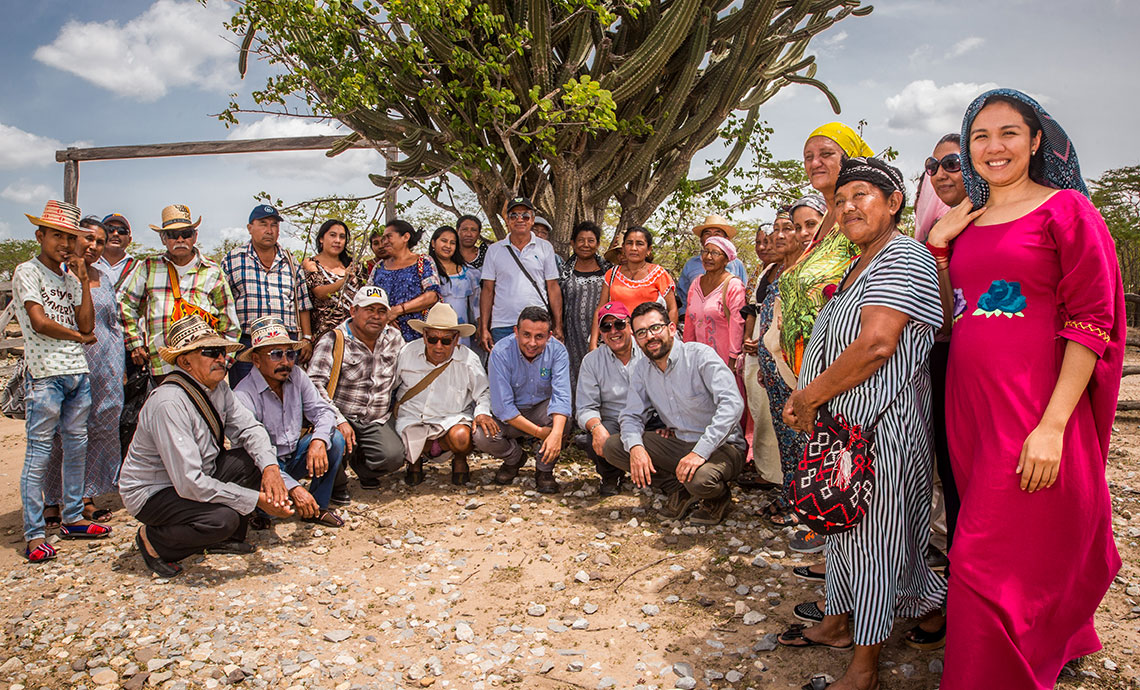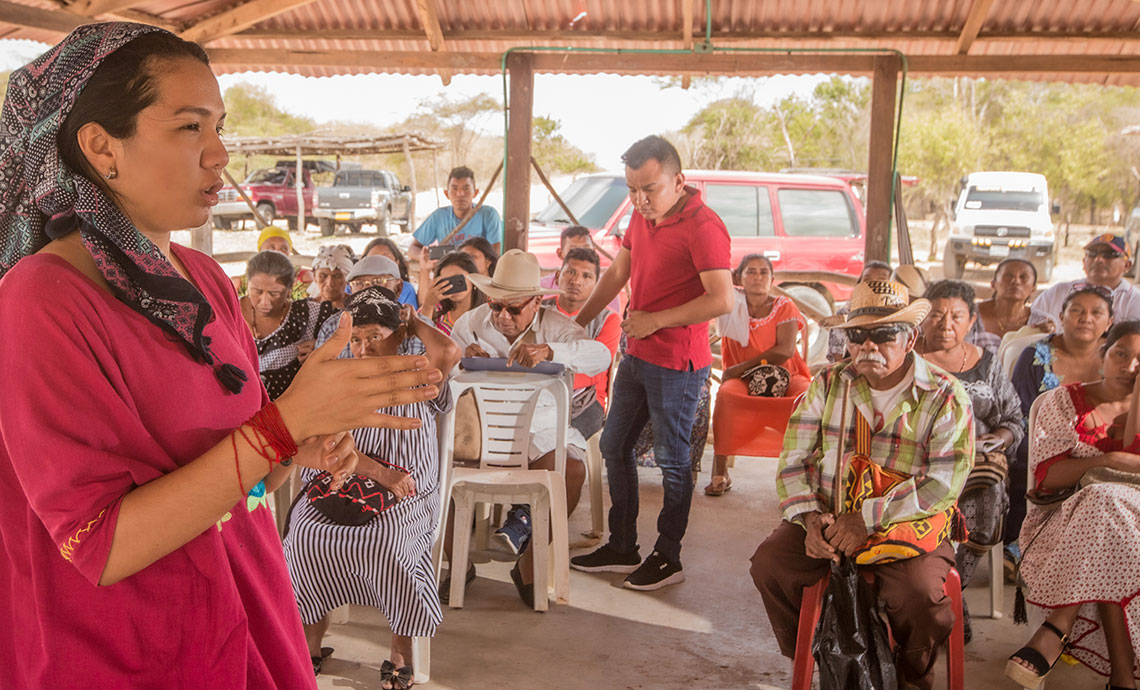-

Prior consultations on the Colectora Project in La Guajira
-

Prior consultations on the Colectora Project in La Guajira
The Colectora Transmission Project is the first in which Grupo Energía Bogotá has engaged in relations with the Wayú community to allow a transmission line to pass through, which will be vitally important for the development of non-conventional renewable energies in Colombia.
“We want to develop this project taking into consideration the customs, traditions and needs of this indigenous people, so that the Colectora Project can be a spearhead for the progress of the communities, which is the best return on investment,” said Diego Efraín García, the project manager.
It will link the power initially produced at the seven wind farms currently under construction in La Guajira to the National Interconnected System (SIN). One section of the transmission line, of approximately 480 kilometers, will pass through 4 municipalities of this department: Uribia, Manaure, Maicao and Albania, where Wayú populations are present.
In order to understand and engage with the communities, and as part of our Relations Policy, from the outset we incorporated eight members of the Wayú people in our team.
The following are the Wayú social managers:
María Francisca Barros Aipir community (Cabo de la Vela)
María Tiles Houluy community (Maicao)
Maryuri Iguarán Los Cocos community, Gouriyu clan (alta Guajira)
Frabricia Peláez Zahino reservation, Zanjas Blancas community, Epiayú clan (South of La Guajira)
Genaro Epiayú Zahino reservation, Zanjas Blancas community, Epiayú clan (South of La Guajira)
Betty Granadillo Epiayú Jolojolomana community, Epiayú clan (Manaure)
Arnoldo Pimienta , Carraipa community, Taguaira township, Epiayú clan (Uribia)
Zoila Gonzales Iyuliwou community, Nazareth sector (Uribia)
“They not only bring relevant information about the project to each group, but they also have the wonderful task of helping the Group to know and understand the customs and traditions of each of these communities, in order to carry out our activities based on respect and care for these cultures,” said García.
“At first, many of our Wayú friends did not understand why we were working for Grupo Energía Bogotá, and they were not very open to the work we are doing, because they were concerned about the development of the prior consultations. The Wayú legal system is different and they were concerned about the procedures and possible compensation, but we have patiently created spaces for dialogs, for open and sincere understanding, and now many of them understand the Group’s commitment to bringing development and progress not only to La Guajira in general, but also to their community,” said Betty Granadillo.
“I am sure that Colectora will have a highly positive social impact through its social investment projects and genuine relations with the communities, offering continuous participation to each audience and maintaining social responsibility policies,” she added.
María Francisca Barros agrees, and points out that Colectora will leave its mark in the region by bringing development, strengthening community capabilities, providing support for entrepreneurial business ideas, promoting the sustainability of the initiatives of all type and contributing to the solution of the existing social issues in La Guajira.
“The work of these employees has been very important. They have been an invaluable bridge to continue developing this project which will, undoubtedly, change the lives of people from La Guajira, and will also continue to contribute to the country’s development," added Diego Efraín García.
“Through them, we have managed to understand the communities, to perceive through the eyes of their culture the possible impacts the project could have on their territory, their customs and their beliefs, and also to identify possible management measures to ensure that Colectora brings benefits and contributions,” he added.